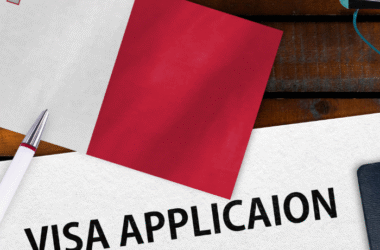July 7th, 2025 was a big date for Identità, Malta’s identity and immigration agency. On the same day it launched a new long-stay visa for foreign sportspersons, the agency also confirmed the surprise resignation of its CEO Steve Agius and Deputy CEO Paula Cauchi Meachen. Stepping in to fill the leadership gap, at least for now, is Colonel Edric Zahra, former Deputy Commander of the Armed Forces of Malta, who has assumed responsibility for overseeing the agency’s operations during this transitional period.
New D-Visa for TCN sports-persons on trial with Maltese clubs
The newly introduced National Long-Stay Visa (Type D) is designed specifically for third-country nationals (TCNs) invited to Malta to take part in short-term sports trials with registered clubs. The scheme answers a long-standing need within Malta’s sports sector, where clubs often face delays or confusion when bringing in talent from outside the EU.
This visa is valid for up to 100 days, during which the sportsperson is permitted to attend trials and participate in training or pre-season activities. It is non-renewable and strictly limited in scope – athletes are not allowed to work outside their designated sporting activity, nor does it automatically lead to long-term residence.
To be eligible, the individual must present a formal invitation from a Maltese-registered sports club, proof of sufficient financial means, a clean police conduct certificate, valid health insurance, and other supporting documents. One of the critical requirements is a signed declaration confirming the athlete is coming to Malta specifically to explore potential recruitment into a professional or semi-professional sports club.
Should the club wish to retain the athlete after the trial, it must apply for a Single Permit within 20 days before the visa expires. This allows the athlete to transition from a short-term visa to a formal employment and residency setup, subject to approval by the relevant sports authority.
This new system is a welcomed step forward, especially for football, basketball, and volleyball teams in Malta, many of which rely on foreign players to strengthen their squads. It introduces a clearer legal framework that helps both the clubs and athletes manage expectations and comply with immigration rules.
More information on National Long-Stay Visa for Sportspersons (Type D) can be found on Identità's official website.
Strict enforcement and implications
Despite its flexibility, Identità has emphasized that the new visa comes with strict enforcement measures. Athletes who overstay or use the visa for purposes other than sports trials may face administrative fines, potential bans from the Schengen area, or difficulty obtaining future permits. If an applicant does not transition to a residence permit in time, they are required to leave Malta, and the Schengen Zone, immediately.
This structured approach is part of Malta’s broader effort to manage migration while supporting niche sectors such as sports, arts, and academia. Similar targeted visa schemes may follow, depending on how well the new D-Visa system functions in practice.
Leadership shake-up
While the launch of the sports visa brought optimism, the second announcement of the day sent shockwaves through public administration circles. Identità confirmed that its CEO, Steve Agius, and his deputy, Paula Cauchi Meachen, had both resigned: effective immediately. No official reason was given for either resignation.
The news was picked up quickly by national media, with both Times of Malta and The Shift News reporting that the resignations were unexpected and unexplained. While some sources hinted at mounting pressure from government officials, there has been no confirmation from the Office of the Prime Minister or the Ministry for Home Affairs.
The abrupt exits are particularly alarming given that Identità serves as the national authority in charge of issuing ID cards, residence permits, visas, and other essential documentation for both residents and foreigners. The agency has already faced criticism for processing delays, administrative backlogs, and poor communication with applicants.
Opposition parties, particularly the Nationalist Party (PN), have called for greater transparency, demanding that the government explain the circumstances that led to both resignations. PN spokesperson Darren Carabott stated that the public has a right to know whether political interference or internal conflicts led to the leadership exit.
What does this mean for applicants?
For applicants, especially foreign nationals already in Malta or looking to relocate, the situation is mixed. On one hand, the launch of the new visa reflects an effort to modernise immigration services in support of sectors like sports. On the other, the sudden resignation of Identità’s top officials casts uncertainty over the stability and efficiency of Malta’s identity management system.
Those planning to apply for the new D-Visa for Sportspersons are advised to follow the guidelines carefully and prepare their documentation well in advance. Clubs should coordinate closely with the Central Visa Unit to ensure compliance with all timelines and permit transitions.
Final thoughts
The events of July 7th underscore the dual nature of public administration – progress in policy can be overshadowed by instability in leadership. Malta’s sports sector stands to benefit from the new visa scheme, which provides a clear and legal path for international talent to enter the country. But at the same time, Identità’s credibility is being tested by the lack of transparency surrounding its leadership shake-up.
In a country where immigration services are critical to economic and social cohesion, trust in public agencies is essential. As Malta moves forward with new initiatives, it must also ensure accountability and openness at the top, starting with clear answers about what really happened behind the closed doors at Identità.







